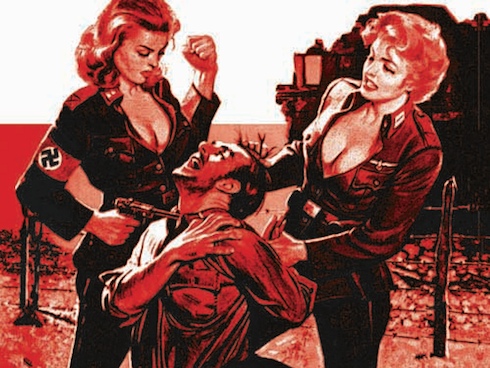Stalags--Holocaust and Pornography in Israel

Full Description
During the early 1960s in the wake of the Adolf Eichmann trial, when the horrors of the Holocaust were coming into focus for the world, a new form of “entertainment” emerged out of the ashes of Auschwitz and into the popular culture of Israel. Boasting such colorful and outrageous titles as I Was Colonel Schultz’s Private Bitch, the cheap pocketbooks known as Stalags featured plots in which concentration camp prisoners were sexually assaulted by their sadistic captors, depicted on the covers as buxom female SS officers. Often pornographic in their descriptions of sex and violence, the books, though controversial, were nevertheless immensely popular with a new generation of adolescent males. For many in Israel, the Stalags were both the only erotic literature available and their first source of information about the atrocities of Nazism. Stalags became bestsellers before being banned just two years after their debut.
No stranger to tackling contentious subject matter, director Ari Libsker, whose 2004 Circumcision scrutinized that Jewish ritual, here examines the roots of Stalags and the cultural role they played in Israel’s response to the horrors of the Shoah. We hear from Stalag collectors, former writers, historians, Holocaust survivors and everyday Israelis, both young and old, who weigh in on the inherent value (if any) of the unique books. Are they merely porn, written to titillate, or in their perverse mix of sex and oppression do they reveal something deeper—a human response to humiliation and suffering? Stalags is a fascinating case study.
Filmmaker Bio(s)
From 2008 Festival: Director, Israel
Ari Libsker is a senior journalist at "Globes" - Israel's leading economic newspaper.
The critically acclaimed film “Circumcision,” also known as “The Cruel Consensus,” deals with the pagan-like, time-honored tradition in Judaism in general and more specifically in Israeli society. The film breaks many taboos by questioning and thoroughly scrutinizing the merit of this radical, yet socially accepted ritual, which in fact has a negative effect on male sexuality. Creating much controversy, the film – both written and directed by Ari Libsker, put the topic on the daily agenda in Israel and set off a heated public debate.
"Home Poem" is the story of three lonely individuals who try to alter their reality and destiny by changing their home and close environment. The way they change and relate to the space around them goes on to reveal a much deeper longing for affection and human contact.
Director(s)
Country(ies)
Language(s)
w/English Subtitle
Release Year
Festival Year(s)
Running Time
62
